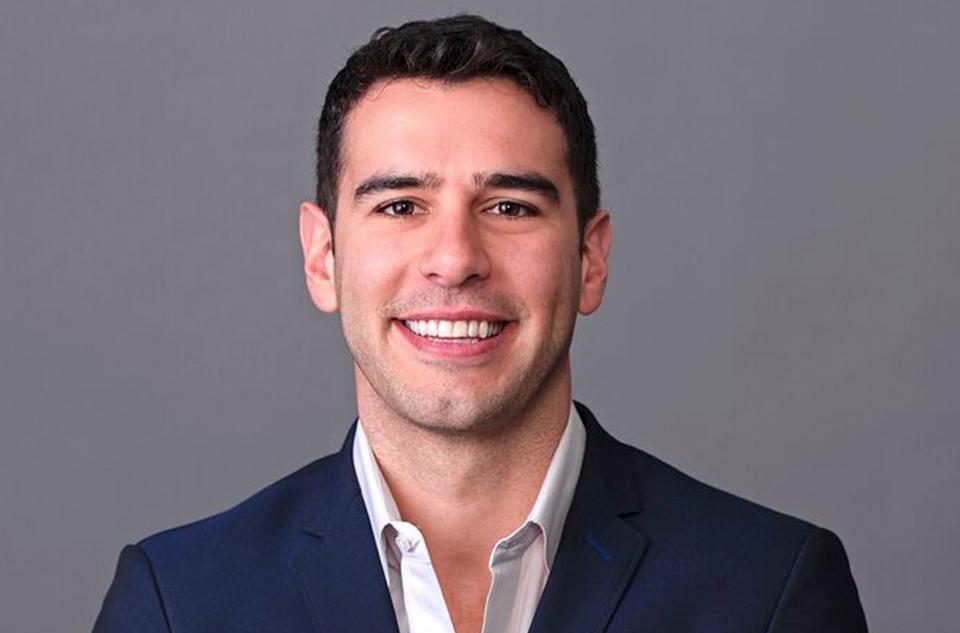

Adam Braun
I spoke to Adam Braun, the Co-founder & CEO of MissionU, about the inspiration behind the new company, how it’s disrupting the education system, why it’s possible for the system to change, the importance of his corporate partnerships, his view on upskilling and his best advice to students.
Braun is the New York Times bestselling author of Promise of a Pencil: How an Ordinary Person Can Create Extraordinary Change. He was previously Founder & CEO of Pencils of Promise, the award-winning organization that has built nearly 400 schools around the world. Braun has been featured as a speaker at The White House, the United Nations and the Clinton Global Initiative. He has also been named to Business Insider’s 40 Under 40, Wired Magazine‘s 50 People Who Are Changing the World, and was selected as one of the World Economic Forum’s original ten Global Shapers. He avidly engages with his social media following of over 900,000 people and in 2015 he received the nation’s most prestigious award for public service, the Jefferson Award.
Dan Schawbel: What’s the inspiration behind MissionU and what need/gap is it filling in the education industry?
Adam Braun: My personal inspiration comes from seeing the crushing impact of massive student debt in my wife’s life, as well as hearing on dozens of college campuses about these same issues where students felt like their curriculum wasn’t teaching them what’s needed to succeed in the real world. Once I learned that student debt is the only debt in the country that can’t be discharged through bankruptcy, my co-founder, Mike Adams, and I were determined to create a debt-free alternative that prepares students to succeed at today’s most in-demand jobs and companies.
91% of college freshman state they’re going to college to get a better job, but we can all acknowledge that very few professors or college administrators see that as their core responsibility. MissionU aligns with students from day one on the goal by charging $0 upfront tuition and instead agreeing to a small percentage of income for just 36 months and only if you’ve landed a job making $50,000 or more. We’re filling the huge demand for people who want to build a great career without taking on all the risk of paying huge sums of money upfront to an education institution without a guarantee of success.
Thus far we’ve raised $11.5M, launched a new major in Data Analytics + Business Intelligence, and brought together a world-class set of instructors and advisors from Harvard, Stanford and MIT. Additionally, we’ve announced start dates every January, May and September so admissions are currently open for anyone that wants to join an upcoming cohort.
Schawbel: There’s over $1.43 trillion in outstanding student loan debt, which has prevented a whole generation from starting companies, being financially independent and has caused all sorts of health problems. Is it possible for the education system to change and for student to recover from this debt? Explain.
Braun: It is definitely possible that the American higher education system can begin to pursue reform in finances, tuition and outstanding student debt. Student debt single-handedly deters young adults from finishing their education and pursuing their dream careers. By employing an income-share agreement model, MissionU only gets paid tuition if our students are successful after they leave the program, and it’s our hope that traditional universities begin to put some skin in the game with their students as well.
Schawbel: Your corporate partnerships are unique in that they help guide the curriculum. Why is this so important to your students and the future of employment?
Braun: MissionU partners with today’s leading companies including Spotify, Lyft, Uber, Warby Parker, Harry’s and Casper so students have access to curriculum that’s been informed by the needs of industry leaders while giving our students access to great companies during their year in the program. This enables us to design a program that teaches students the hard, soft and technical skills that great companies are seeking out of today’s graduates, while also preparing our students for not just the classroom, but real life. Our final trimester is a fellowship where students actually work on real world projects for companies, so they’re able to graduate with a robust resume, a public portfolio of work, and great professional references.
Schawbel: One of the big trends I’ve been studying is new education credentials and upskilling. What are your thoughts on these topics?
Braun: The demands of today’s workforce are certainly evolving and the future of work plays a large part in what’s happening to today’s curriculums. I believe that we’re moving from an era in which you were a full-time student from 5-22 years old and then a full-time professional after that, to an era of lifelong learnership. The need to constantly reinvest in each person’s evolving education will only increase, and upskilling plays a large part in this. While some of our students come to us straight out of high school, most are in their early-mid 20’s or 30’s so we’re on the cutting edge of this trend. There’s certainly a new wave of education credentials happening today, but we believe that your most valuable credential to any employer is your most recent job, and that’s where our partnerships with so many of today’s leading employers are an absolute gamechanger.
Schawbel: What advice would you give students who have great aspirations but don’t know where to start?
Braun: My biggest advice to any person with big aspirations is to make sure you step outside of your comfort zone and follow that inner voice, because that’s where true self-discovery and the biggest opportunities exist. Additionally, the difference between those who succeed and those who don’t is how they respond to the unexpected. The majority of people will see difficult moments as crushing challenges, but those who see them as gifts and new opportunities find a way to thrive. At MissionU we had no idea how many people would apply for our first class of 25 students. When nearly 5,000 people applied, we immediately changed our growth plans, raised more capital and are now admitting students rapidly to meet the need we’re seeing across the country for high-quality education that gets results.
[“Source-forbes”]



